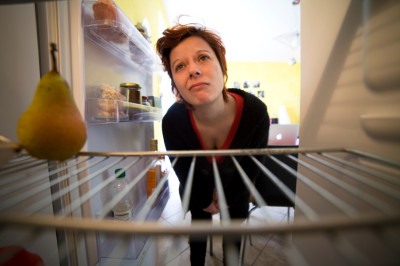 Be prepared: Forward planning will make the process much easier. Plan your meals ahead of time and get organised before you go food shopping. Make meals in advance to save time.
Be prepared: Forward planning will make the process much easier. Plan your meals ahead of time and get organised before you go food shopping. Make meals in advance to save time.
Organic where possible: Foods containing chemical residues from pesticides and other sources will add to the toxic burden of the body and should be avoided. Ideally it is worth buying organic during a detox. If you are unable to access organic food, make sure you soak then thoroughly wash all vegetables under running water, this will help reduce your overall toxin intake and is a good practice to continue after the detox. Seasonal produce is recommended.
Avoid prepackaged food: Canned foods usually contain a white plastic inner lining, containing bisphenol-A more commonly known as BPA, These chemicals have been shown to disrupt hormones in both men and women. Any processed foods will have chemicals and other substances added to increase their shelf life. These substances may add to the toxic burden of the body.
12 hour fasting each day: Avoid eating from 7pm to 7am (12 hr fast period each day – provided there are no blood sugar problems); this will allow the digestive tract and body to rest and detoxifying overnight.
Avoid over-eating: Over-eating (even of healthy foods) places a huge burden on the digestive tract, liver and metabolism. Reduce the portion size of meals and make the evening meal the smallest of the day.
When in doubt leave it out: Adhere to the food list guide-lines for the duration the entire detoxification program. If you think or feel a food may not be allowed, it’s probably best to leave it out.
Avoid ALL known reactive foods: Food intolerances and allergies may aggravate the body, reducing its ability to effectively detoxify and are best avoided. For those of you who have been tested for food intolerances it is important that you continue to avoid your reactive foods even if on the ‘consume’ list. For those of you who haven’t been tested, rest assured that most of the common reactive foods are already taken out of the detox. If you are interested in getting food intolerance testing done, speak to your practitioner.
Maintenance: The period of your detox program really depends on the type of health issues you are addressing. While chronic conditions may need a prolonged detox period most people have finished their detox in around 8 weeks. However, it is important that you recognise the types of food habits that may have contributed to your health issues in the first place. Our Wellness program due to be launched in 2015 is the ideal maintenance eating plan, it provides lots of delicious recipes, great information on healthy food choices and inspiration to keep you on track with a healthy diet. Speak to your practitioner at the end of your detox for more information.

